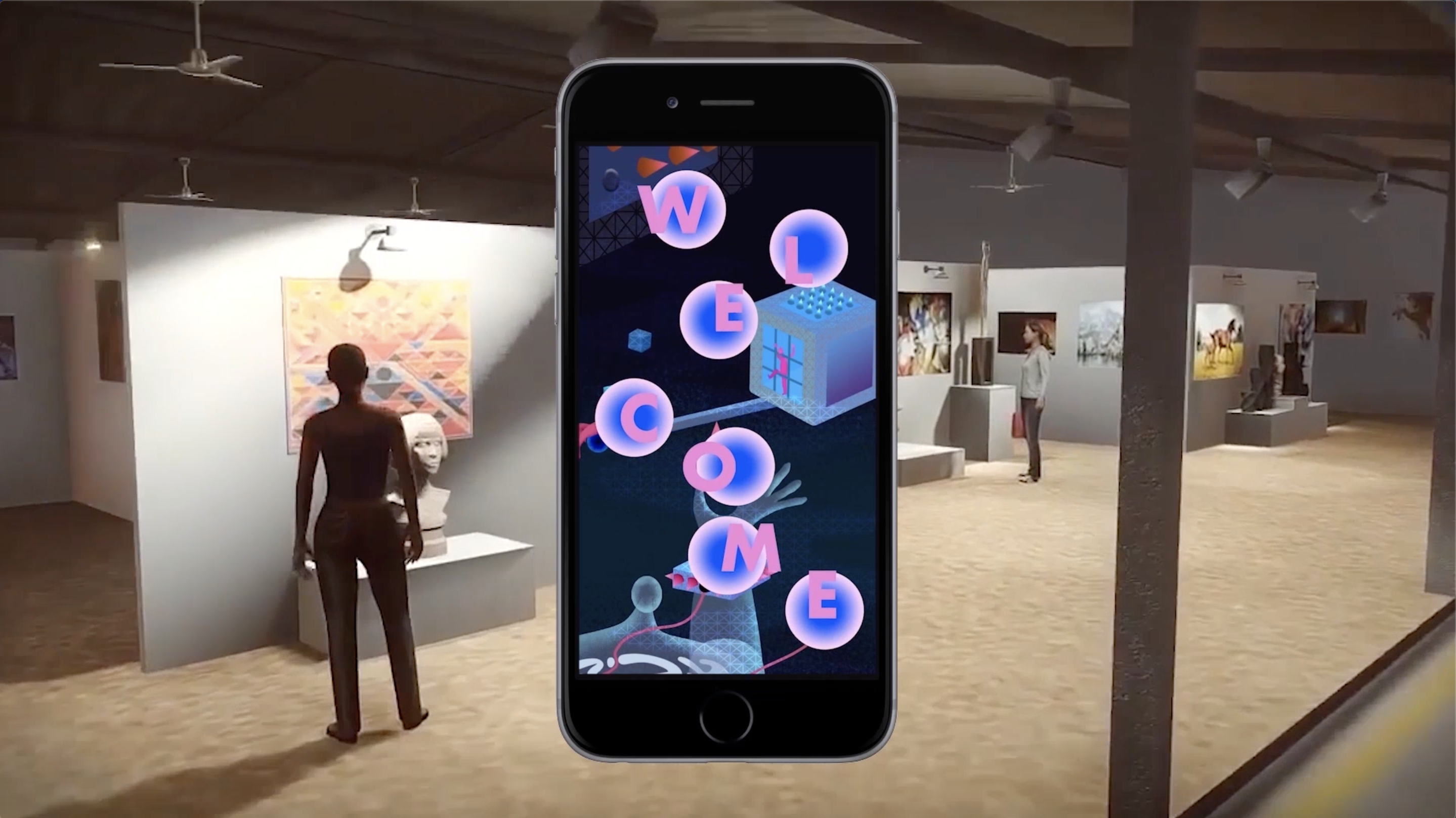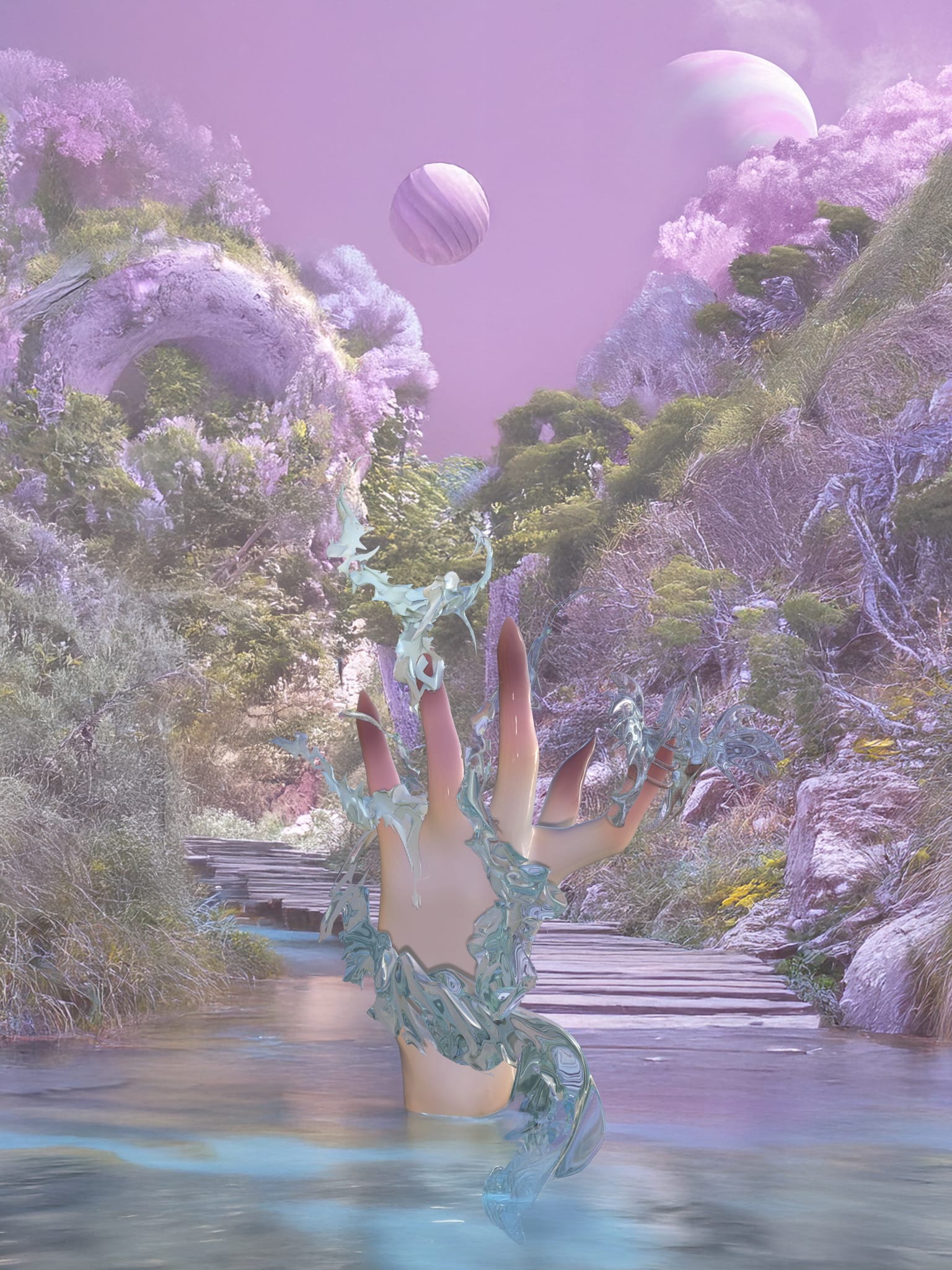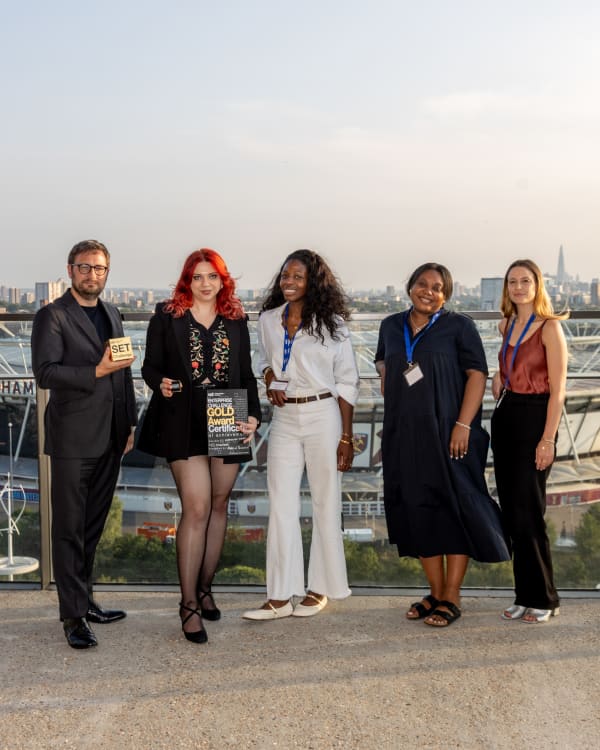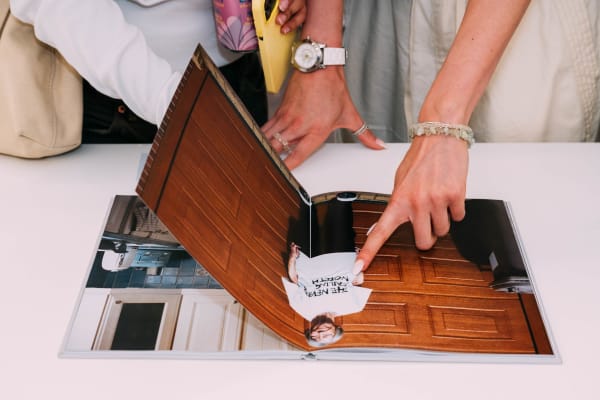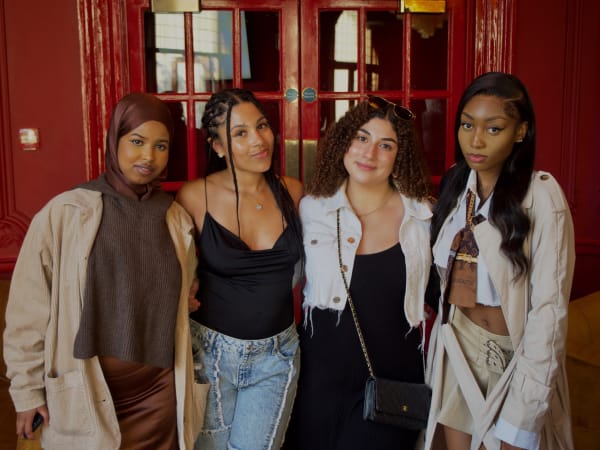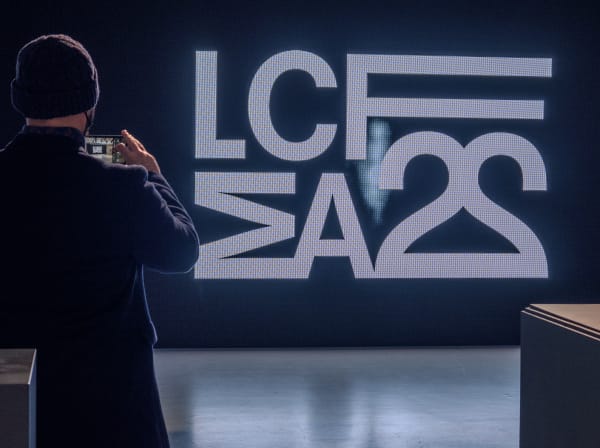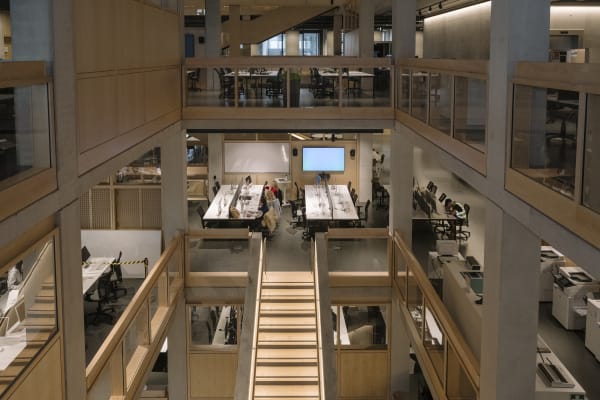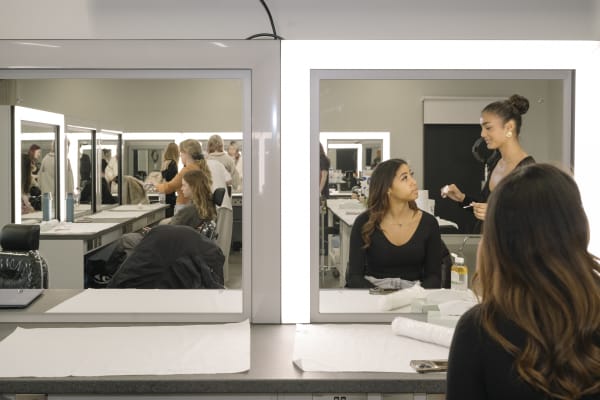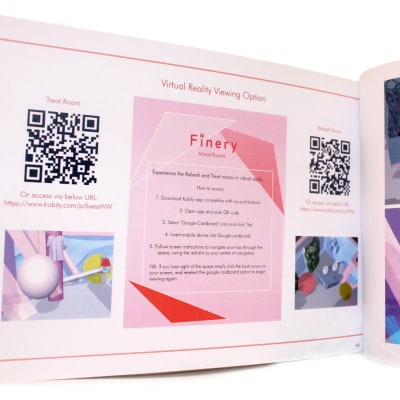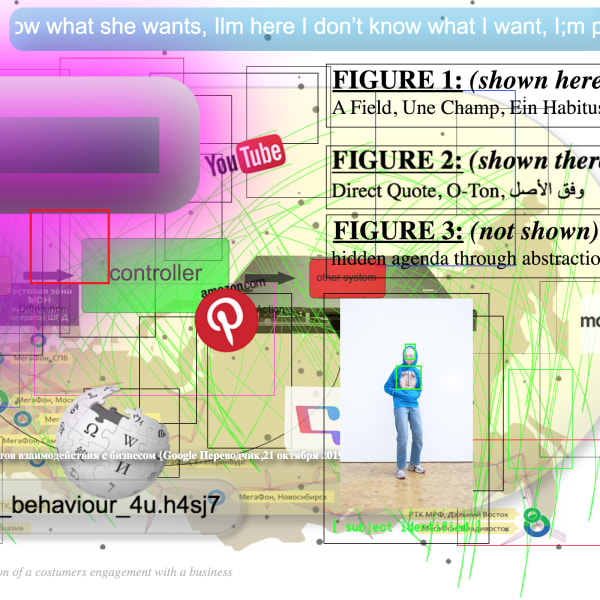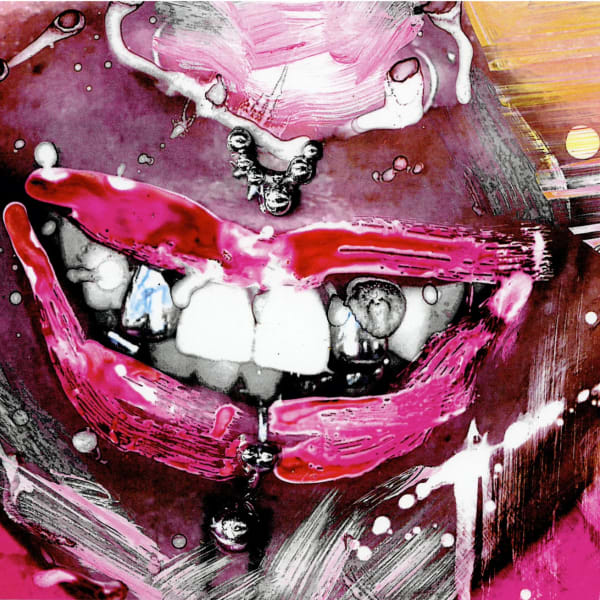Course units
Level 4
In the first year of the course, you will be introduced to the foundational skills of fashion communication and creative direction.
The units you will study in Year 1, Stage 1, Level 4 are as follows:
- Introduction to Fashion Communication (20 Credits);
You will be introduced to your course, its subject specialism and effective learning at undergraduate level. You’ll learn the practices and knowledge base needed to understand your discipline and develop skills for independent & collaborative learning, reflection and self-development.
- Creative Contexts (40 Credits);
You will explore foundational practices and skills essential to the creative direction practice, such as research, experimentation and collaboration. You will be introduced to contemporary design principles and concepts and use these to develop meaningful creative assets through conceptual and practical application.
- Fashion Cultures and Histories (20 Credits);
You’ll take a philosophical and theoretical approach to the study of fashion and its role in representing and communicating identity. Understand key ways of thinking about fashion across its cultural, historical, social and political contexts. Engage in debate and analysis of fashion as a key marker of social and cultural change and a means of understanding the relationship between individuals and communities.
- Experiential Narratives (20 Credits);
You will explore the convergence of digital and physical environments and experiences for audiences. You will be introduced to change-making principles and ethics of inclusive storytelling for emerging areas of fashion communication. Working independently and with peer support, you will produce a prototype for an immersive platform or experience to facilitate greater diversity, inclusivity and accessibility.
- Fashion Communication: Community of Practice (20 Credits)
Develop your understanding of the fellow disciplines in the Fashion Communication programme. Consider how this community of practice can contribute to a more socially conscious future and produce a proposal for a project that promotes change making through collaboration.
In Stage 1 you are required to complete 120 credits at level 4 in order to progress to Stage 2.
Level 5
The second year builds on these core skills by inviting you to situate them within an applied context: designing of community experiences, strategic thinking and speculative design, and the mobilising and communicating of appropriate creative responses to racial, social and planetary concerns.
The units you will study in Year 2, Stage 2, Level 5 are as follows:
- Critical Issues in Fashion Research (20 Credits);
Expand your critical understanding of fashion in a global context and examine emerging debates in fashion research. You’ll engage in collaborative research around current and emerging cultural issues and be guided through researching and writing about fashion across its social, historical, political and cultural contexts, building on the first-year unit Fashion Cultures and Histories. You’ll develop your own independent research path and interests.
- Critical Communities (20 Credits);
Explore the conceptual and practical competencies of event curation, community-building and cultural programming through a creative direction lens. You will research the needs of an identified critical community, addressing ecological and social justice concerns and respond by conceptualising a cultural programming event, activation or start-up which could include spatial; sound; and art design for place-making.
- Fashion Communication: Situating Your Practice (20 Credits)
Explore and develop your fashion communication identity and position yourself within the professional fashion eco-system. You will examine the possibilities available to you now and in the future and determine the skills you need to develop your practice and professional profile. You will consider how your work has purpose, addressing your motivations and values.
- Fashion Communication: Professional Practice Placement/Portfolio (20 Credits)
You have an option to choose:
Placement
Undertake a short- term placement in industry which is suitable for your own development and career aspirations. The Graduate Futures Placement Team provides support to get a placement and you can directly apply to companies.
Portfolio
Experiment with creative practice and develop an outcome for your portfolio in response to an industry brief. Using a process of design principles you will define, ideate, and test your ideas with an external audience in mind. There will be support throughout from both academic and industry practitioners.
- Future Directions (40 Credits).
In this unit, you will explore the intersections of strategic problem-solving, innovation and speculation. You will be introduced to foresight and world-building methodologies and use these to envision and present compelling and necessary future contexts for fashion. You will use your individual and collaborative skills in image-making, moving-image production, curation and community engaged practice to work towards social, racial and climate justice for the future.
In Stage 2 you are required to complete 120 credits at level 5 in order to progress to Stage 3.
Optional Diploma Year
Industry DIPS
This optional diploma can be taken between years 2 and 3. With support from your tutors, you’ll undertake an industry placement for a minimum of 100 days/20 weeks. As well as developing industry skills, you’ll gain an additional qualification upon successful completion.
Enterprise DIPS
This optional diploma can be taken between years 2 and 3. With support from your tutors, you’ll undertake an enterprise placement year where you will explore a business idea from proposal to minimal viable product (MVP). As well as developing enterprise skills, you’ll gain an additional qualification upon successful completion.
CCI Creative Computing
Between years 2 and 3, you can undertake the year-long Diploma in Creative Computing. This will develop your skills in creative computing alongside your degree. After successfully completing the diploma and your undergraduate degree, you’ll graduate with an enhanced degree: BA (Hons) Creative Direction for Fashion (with Creative Computing).
CCI Apple Diploma
Between years 2 and 3, you can undertake the year-long Diploma in Apple Development. This will give you an opportunity to become an accredited apple developer alongside your degree. After successfully completing the diploma and your undergraduate degree, you’ll graduate with an enhanced degree: BA (Hons) Creative Direction for Fashion (with Apple Development).
Level 6
The third year consolidates these skills and expands them further by enabling you to identify, develop, and realise your own creative and strategic practice through extended research-driven and practice-led projects. Finally, you will bring your body of work together to build your own portfolio.
The units you will study in Year 3, Stage 3, Level 6 are as follows:
- Context for Communication Project (20 Credits);
You will explore a research topic of your own choosing and engage critically with a variety of primary and secondary research methods. You will identify a suitable contextual direction in alignment with your personal practice and professional/academic ambitions. You will analyse, evaluate and present structured context which will inform the next unit, Communication Project.
- Communication Project (40 Credits);
In this unit, you will bring together the core competencies, methods and processes developed during your time on the course – filtered through our own creative direction practice. You will use context formed in the previous unit to define the terms of a personal communication project. You will ideate, prototype and produce a portfolio piece or pieces in response to your individual brief or research question. You must evidence original ideas, new insights, technical proficiency and project management.
- Professional Presentation (20 Credits);
Consolidate your learning and prepare for future employment or postgraduate opportunities. Reflect on your career goals to position yourself and your work for future professional contexts. You will be supported by tutors, alumni and creative practitioners to select appropriate media and platforms to creatively and professionally present you and your work.
- Creative Industries: Theories and Practices (40 Credits) or Fashion Communication: Practice and Research (40 Credits)
You have the option to choose:
- Creative Industries: Theories and Practices (40 Credits)
In this unit, you’ll complete an independent research project and engage with industry professionals to learn about current debates and issues that shape and inform cultural production across media, communication and performance. You’ll be encouraged to respond to these debates in the form of an extended essay with supporting research materials. This unit will equip you with critical thinking, literacy and communication skills for both academic and professional contexts.
or
- Fashion Communication: Practice and Research (40 credits)
Explore an area of interest in Fashion Communication by combining your creative practice with a theory and process led enquiry. Your chosen topic should relate to your field of practice, addressing contemporary and critical debates. You’ll learn about practice-based research, define a research area, and respond to it, testing your ideas in preparation for the Communication Project unit, through a creative process and academic writing.
In Stage 3 you are required to complete 120 credits at level 6.
A 20-credit unit is approximately equivalent to 200 hours of learning time, which includes a mixture of taught time, independent study and assessment.
All students are entitled to a tutorial package that consists of:
- one induction tutorial (group or one to one);
- one tutorial per block for the duration for their course of study at LCF;
- group tutorials as required;
- an appropriate level of confidentiality.
